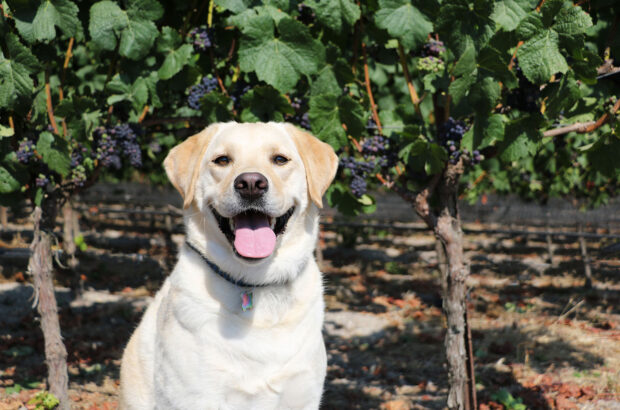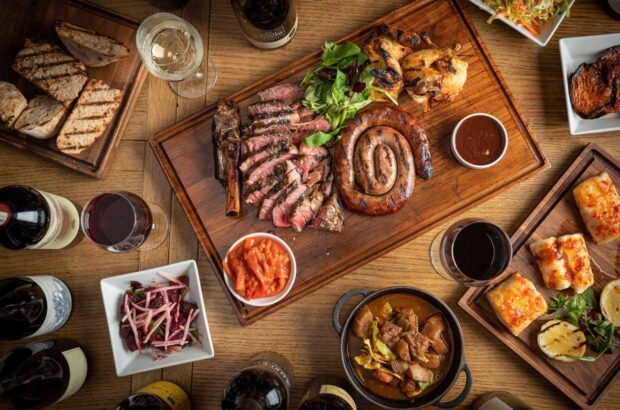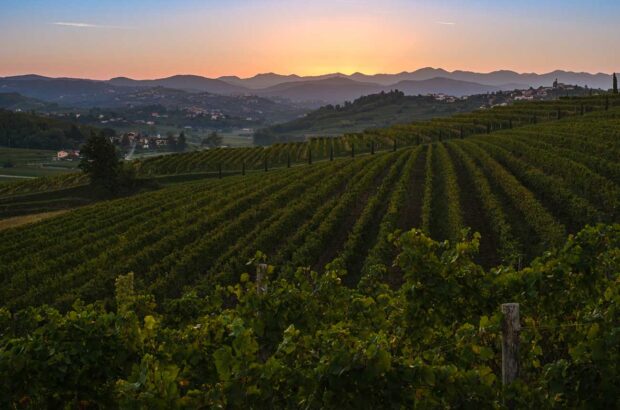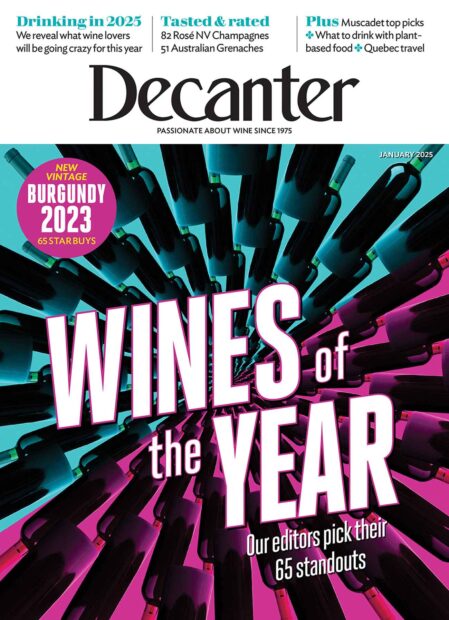To celebrate the 10th anniversary of the Decanter World Wine Awards, we're profiling a number of this year's judges, who are some of the world's most renowned wine experts. Our 'Meet the Judges' interview series offers a rare insight into the world of wine and judging from the key industry experts deciding this year's best wines.
Find out about the new Decanter World Wine Award Regional Chair for Tuscany, Monty Waldin, in our exclusive interview…
Tell us a little about yourself – where are you based and where do you work?
At the moment I am based in Tuscany, in Montalcino of Brunello fame, with my Italian partner and our young son. However, I spend much of my time travelling, either writing about wine or increasingly, advising winemakers in various parts of the world about how to become “greener”.
Tell us a bit about your expertise and how you got into wine?
I got into wine as a teenager, when my teacher sent me to France to improve my spoken French. Having made wine at home as a kid I managed to wangle a job on a Bordeaux château for the summer holidays. Having a big nose well-suited to wine tasting meant my career path was soon assured, and at a reassuringly early age. I have a long-standing interest in organic and biodynamic wine-growing because both my maternal grandfather and my father grew most of their own vegetables. I learnt to recycle garden waste into soil-enhancing compost as a youngster. I probably spend as much time making biodynamic compost for vineyards as I do writing.
What are the most valuable lessons you’ve learned while working in the wine industry?
- Even though the customer is king, wine industry types often forget this. Wine can be art, or science, or history, or romance, or whatever you want it to be, but from a wine-grower’s perspective, the best bottle of wine is one which has be sold, paid for, drunk and enjoyed.
- Long wine industry lunches are invariably less good for your waistline and understanding of wine than time spent walking around vineyards with those that know them.
Who has been your biggest inspiration during your wine career?
When I was learning how to make wine in Bordeaux as a teenager, an oenologist called Marc Quertinier taught me three key things:
- Never judge a wine by its label.
- Always see the positive in any wine before looking for the negative.
- Never overlook the importance of a wine’s texture.
I try to keep these in mind when tasting and drinking wine.
What’s your most memorable wine moment from the last ten years?
Rather immodestly I am going to have to say seeing ordinary people enjoy my ‘Chateau Monty’ wines. These were inexpensive, no frills wines for everyday drinking, made with minimal inputs in the vineyard and winery. They were made to be drunk rather than talked about, and they did the job.
Which kinds of wines do you think should be given more attention in 2013?
Wines from outside France made with native grapes rather than French imports.Tuscany has been particularly blighted by French interlopers. [The region] has wonderful grape varieties of its own, an incredible sunny-breezy climate, brilliant soils, plus plenty of gifted vineyard managers and winemakers. When I drink real Tuscan wine and eat real Tuscan food I never feel I am lacking something that only France could give me.
Which wines are you drinking at home at the moment?
I am lucky because I mostly drink wines made in my local Tuscan village: Sangiovese-based reds with lunch and dinner; Vin Santo for relaxing after a big Sunday lunch; plus dry whites from grapes like Vernaccia, from the other side of Siena, or Vermentino from nearer the Mediterranean coast.
What’s your ‘desert island’ wine?
On a desert island living conditions would be pretty basic, and it would be hot. Hence I would have to go for sherry, or best of all, plenty of indestrucible Madeira, both to drink and to help disinfect the succession of small wounds and bites I would get from desert island living.
What single piece of advice do you have for new people just starting out in wine?
Spend 98% of your time in the vineyards, 1% in the winery and 1% talking about and tasting wine. Your understanding of wine will deepen only if you have learnt how to “read” a vineyard. By that I mean understanding whether everything in that vineyard – soil, vines, insects or birds flying around, weeds on the ground – appears as it should be. If the vines are in balance then the winemaker shouldn’t have too much work to do, and that’s the way it should be.
Finally, when judging, what are you looking for in great wine?
Honesty. By that I mean a great wine for me is one with a sense of place, even if that place is quite humble, because it means the wine has a personality – a unique identity of the vineyard it came from.
The Decanter World Wine Awards 2013 is now open for entries. Click here for more information and to enter wines into this year’s competition.
Written by Decanter.com






